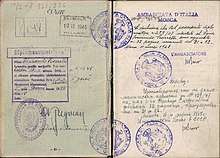Manlio Brosio
Manlio Giovanni Brosio (10 July 1897 – 14 March 1980) was an Italian lawyer, diplomat, politician and the fourth Secretary General of NATO between 1964 and 1971.
Manlio Giovanni Brosio | |
|---|---|
.jpg) | |
| 4th Secretary General of NATO | |
| In office 1 August 1964 – 1 October 1971 | |
| Preceded by | Dirk Stikker |
| Succeeded by | Joseph Luns |
| Personal details | |
| Born | 10 July 1897 Turin, Italy |
| Died | 14 March 1980 (aged 82) Turin, Italy |
| Political party | Italian Liberal Party |
| Military service | |
| Allegiance | |
| Branch/service | |
| Unit | Alpini |
| Battles/wars | World War I |
Early life
Brosio was born in Turin and studied law in the local university. During the World War I, he served in Alpine regiment as an artillery officer. After the war, he graduated and in 1920 he entered politics. Later his political activity was barred because of his opposition of Fascism.
Career
During World War II, after Allied invasion of Italy in 1943, Brosio went underground and later became a member of the National Liberation Committee. After the war he re-entered politics, and became a deputy prime minister and in 1945, a minister of Defense.
In January 1947, Brosio became the Italian ambassador to Soviet Union and got involved with the peace treaty negotiations between the countries. In 1952 he became ambassador to the UK, to the USA in 1955 and from 1961–1964 to France.
On 12 May 1964 the NATO council chose Brosio to succeed Dirk Stikker as a secretary general. He resigned 3 September 1971. On 29 September 1971, U.S. President Richard Nixon awarded him the Presidential Medal of Freedom.
Personal life
Brosio died in Turin. He was the uncle of singer and television presenter Vanna Brosio.[1]

References
- NATO Who is Who? Secretary General Manlio Brosio. Retrieved 2 October 2005.
- Sergio Miravalle. "Intervista Giorgio e Paolo astigiani celebri". La Stampa. 27 July 1996. p.3.